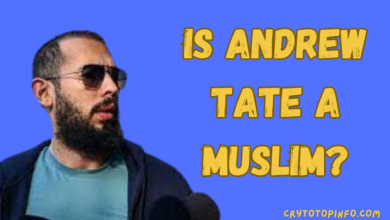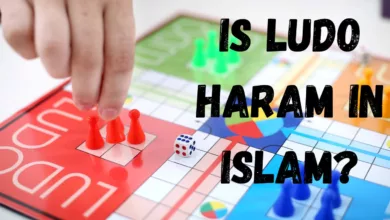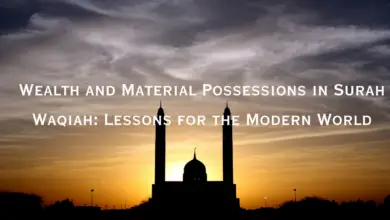
Introduction:
Easter is a significant religious holiday for Christians, commemorating the resurrection of Jesus Christ after his crucifixion. The celebration is marked with various traditions, including attending church services, Easter egg hunts, and festive meals. However, as a religiously diverse world, it is essential to recognize that not all religious communities observe Easter in the same way. One such community is the Muslim population. This article aims to shed light on the relationship between Muslims and Easter, exploring whether or not Muslims celebrate this Christian holiday.
The Background of Easter:
Easter, celebrated on the first Sunday following the first full moon after the vernal equinox, has deep historical and religious roots. It marks the culmination of Holy Week, starting with Palm Sunday and ending with Easter Sunday. For Christians, it is a time of spiritual reflection and rejoicing in the belief that Jesus rose from the dead, providing eternal salvation for believers.
Understanding Islam and Its Holidays:
Islam, the world’s second-largest religion, follows the lunar-based Islamic calendar. The two most significant religious holidays in Islam are Eid al-Fitr, which marks the end of Ramadan, the holy month of fasting, and Eid al-Adha, commemorating the willingness of Prophet Ibrahim (Abraham) to sacrifice his son Isma’il (Ishmael) as an act of obedience to God’s command. These two Eid celebrations are the most prominent events in the Islamic calendar, but Islam does not have any observance directly analogous to Easter.
Muslim Beliefs Regarding Jesus:
To comprehend the Muslim perspective on Easter, it is essential to understand their beliefs concerning Jesus. Islam holds Jesus, known as ‘Isa (AS) in Arabic, in high regard as a prominent prophet, but not as the Son of God. Muslims believe that Jesus was born to the Virgin Mary (Maryam), performed numerous miracles, and preached the message of monotheism. However, they diverge from Christianity in denying Jesus’ crucifixion and resurrection.
Muslims believe that before Jesus could be crucified, God raised him to the heavens, saving him from death on the cross. According to Islamic belief, Jesus will return to the earth in the future as a just leader and will contribute to the establishment of peace and justice.
Muslim Perspectives on Easter Celebrations:
Due to the theological differences between Christianity and Islam regarding the crucifixion and resurrection of Jesus, Muslims do not celebrate Easter in the same way that Christians do. Easter is considered a specifically Christian holiday that commemorates events from the life of Jesus as interpreted by Christians.
However, it is essential to recognize that Muslims respect the beliefs of other religious communities and acknowledge the significance of Easter to Christians. In areas with diverse populations or where interfaith dialogue is encouraged, Muslims may participate in various Easter-related activities as a show of solidarity and respect for their Christian neighbors.
For example, some Muslim-majority countries with significant Christian minorities may witness public Easter celebrations, and in such cases, Muslims might participate in these events to foster communal harmony and cultural exchange.
Common Ground: Shared Values During Easter:
Although Muslims do not observe Easter as a religious holiday, there are common values shared with Christians during this time. Both Islam and Christianity emphasize love, compassion, charity, and the importance of family and community bonds. During the Easter season, Muslims might engage in acts of kindness, extend greetings to their Christian friends, and participate in community initiatives aimed at fostering goodwill.
Conclusion:
In conclusion, while Easter holds profound religious significance for Christians worldwide, Muslims do not celebrate this holiday as a part of their faith. Islam and Christianity have distinct beliefs concerning the life and resurrection of Jesus Christ, which shape their respective religious practices and observances.
Despite the theological differences, it is crucial to emphasize that Muslims generally demonstrate respect for the beliefs and traditions of other religious communities, including Easter for Christians. In regions with diverse populations, Muslims may engage in various Easter-related activities to foster unity, promote cultural exchange, and strengthen interfaith bonds.
Understanding and appreciating the diversity of religious practices is vital for promoting tolerance, harmony, and mutual respect in our globalized society. By recognizing and acknowledging the significance of Easter to Christians, Muslims can contribute to building bridges of understanding and creating a more inclusive and empathetic world, where individuals of different faiths can coexist harmoniously and celebrate their respective traditions with dignity and respect.
Do Muslims celebrate Easter?
No, Muslims do not celebrate Easter. Easter is a Christian holiday that commemorates the resurrection of Jesus Christ, and it is not part of Islamic religious observances.
Why don’t Muslims celebrate Easter?
Muslims do not celebrate Easter because their religious beliefs differ from those of Christians. Islam considers Jesus (known as ‘Isa in Arabic) as a revered prophet but does not believe in his crucifixion or resurrection.
What do Muslims believe about Jesus’ crucifixion and resurrection?
In Islamic belief, it is held that Jesus was not crucified but was rather lifted up to the heavens by Allah (God). Muslims do not believe in the resurrection of Jesus as it is described in Christian theology.
How do Muslims mark the time around Easter?
For Muslims, the time around Easter is like any other time of the year in terms of religious observances. They continue with their regular prayers, acts of worship, and other Islamic practices.
What are the main Islamic holidays?
The main Islamic holidays include Eid al-Fitr, which marks the end of Ramadan (the month of fasting), and Eid al-Adha, which commemorates the willingness of Ibrahim (Abraham) to sacrifice his son as an act of obedience to Allah.
Are there any similarities between Easter and Islamic holidays?
While Easter is a Christian holiday with its specific significance, both Christianity and Islam share a focus on faith, prayer, and devotion to their respective beliefs. However, the observances and themes of the two traditions’ holidays are distinct.
Can Muslims participate in Easter celebrations with their Christian friends?
Muslims may show respect for their Christian friends’ celebrations, but they typically do not participate in Easter-specific religious rituals or events. Interfaith understanding and respect are essential, and Muslims may join in social gatherings and activities without engaging in religious aspects.
What are some common misconceptions about Muslims and Easter?
One common misconception is that all religious communities celebrate the same holidays. However, different faiths have distinct religious observances with unique theological significance. Muslims’ beliefs and practices are rooted in Islamic teachings, which are different from those of Christianity.
Do some cultural Muslim communities participate in Easter festivities?
In some regions with diverse cultural practices, Muslims may be influenced by local customs and participate in certain secular aspects of Easter celebrations, such as community events or exchanging greetings. However, this is not a religious observance but rather a cultural expression of unity and harmony with neighbors of different faiths.
How can Muslims and Christians foster understanding during Easter and other holidays?
Building understanding and respect between Muslims and Christians during Easter and other holidays can be achieved through open communication, learning about each other’s beliefs and practices, and engaging in interfaith dialogues. Emphasizing common values, such as compassion, charity, and love for humanity, can further strengthen bonds between the two communities.





